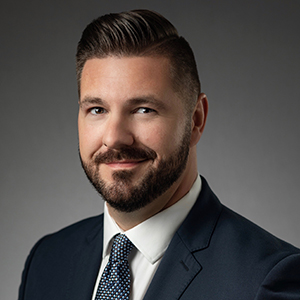Life Coach Education & Career Guide
You May Also Enjoy
What Can I Earn as a Life Coach?
What you’ll earn as a life coach can depend on a number of factors, including where you work and your experience.

Life coaching is a growing field with many opportunities. The U.S. Bureau of Labor Statistics (BLS) includes life coaches in the category of educational, guidance, and career counselors and advisors, who earn a median salary of $61,710 a year, with the top 10% earning over $100,050. This is based on national data, not school-specific information. Conditions in your area may vary.
In This Article
What you’ll earn as a life coach will depend on a number of factors, including your:
How Do Life Coach Salaries Compare?
Find out how a life coach’s salary compares against similar types of careers. There are no education requirements to be a life coach, but credentials are often preferred by employers such as businesses, nonprofits, and government agencies.
It’s worth noting here that while life coach and therapist might seem like similar professions, their roles are actually quite different. A life coach helps clients move forward by setting and meeting goals, while a therapist helps clients look back to heal from past trauma. Again, this is based on national data, not school-specific information. Conditions in your area may vary.
Source: https://www.bls.gov/oes/current/oes211012.htm
How Will My Salary Compare If I Own My Business?
Many life coaches start their own businesses, and some specialize. You may or may not make more money on your own—that will depend on a number of factors, including:
Jenny McGlothern has owned the retreat and life coaching business Mama Needs a Refill since 2010.
Her advice on starting a business: “Do it, if you know in your heart it is the right choice for you. But be realistic. It takes a while to build a practice—maybe longer than you have patience for. Don’t think you graduate and then, boom, success happens. It takes some time.”
Is There Demand for This Career?
The International Coaching Federation says the number of coaches estimated worldwide has grown by 33%, from 53,300 to 71,000, in 2020. And the field may continue to expand, according to the BLS, which projects job growth of 5.4% through 2031, higher than the national average for all careers.
The ICF expects a major area of growth to be internal and organizational life coaching positions, says Luke Davis, vice president of ICF coach training.
A recent study by the ICF and the Human Capital Institute, which helps companies develop leadership, shows that a remarkable 83% of organizations surveyed plan to use staff and consultant coaches to train managers to use coaching to elevate leadership, team, and organizational performance.
In anticipation of this growth, the ICF says it has created a new division to lead the advancement of coaching in organizations and transform how people and teams work and thrive.
The International Coaching Federation says the number of coaches estimated worldwide has grown by 33%, from 53,300 to 71,000, since 2015.
McGlothern says individuals and organizations want to “proactively focus on improving in areas such as health and wellness, mindfulness, performance, relationships, and transitions.”
She anticipates strong demand for coaches who focus on:
How Much Competition Will I Face?

As a new coach, you’ll want to think about how best to launch your career. If you start your own business without much experience, you’ll likely find yourself competing against life coaches who have years in the field, a strong client base, and an established reputation.
If you go this route, you could market yourself in an area where there are few life coaches. As McGlothern notes, “if you have a phone and the internet, you can work with anyone, anywhere.”
Starting out as a coach for an organization or company could be the best way to gain experience right out of the gate. In some settings, you may work alongside other coaches and have a chance to learn from veterans and gain valuable experience.
The ICF is recognized by the coaching industry as a leader in setting standards for the profession, and earning an ICF credential could give you an edge among job candidates. Job postings for corporations, large non-profits, and government coaching positions often require an ICF-certified coaching credential, says Davis.
Where Do Life Coaches Work?
If you own your own coaching business, you can work anywhere you want, from an office in an executive building downtown to a favorite lakeside lounge chair.
Experience will be key to advancing your career. As you help your clients reach their goals, you’ll build on your reputation, and this can help you win referrals.
If you work for a company or organization, you’ll find yourself in a variety of settings.
Potential employers include:
How Do I Advance in This Profession?
Experience will be key to advancing your career. As you help your clients reach their goals, you’ll build on your reputation. This can help you take on larger coaching roles and win referrals from satisfied clients.
Another way to advance is through credentials. There are several ways to do this, including earning a coaching credential from the ICF or a specialty organization like the National Board for Health and Wellness Coaching. A credential shows that you’re recognized for your expertise, knowledge, and professional standards.
Former corporate executive Angelina Corbet, a coach, speaker, seminar leader, and founder of The Mobius Company, offers this advice to aspiring life coaches:
“Great coaches have great coaches,” says Corbet. “And they remember to check in often.”

Written and Reported by:
Sheila Mickool
Contributing Writer
With professional insight from:

Luke Davis
Vice President of ICF coach training programs

Jenny McGlothern
Owner of Mama Needs A Refill

Angelina Corbet
Founder of The Mobius Company
